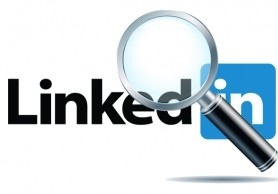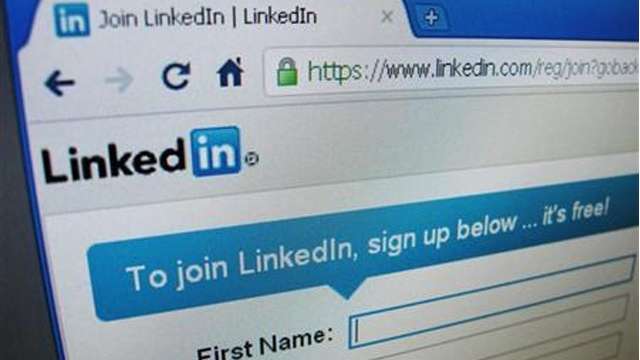
Resumes, LinkedIn, and HR Portal Profiles, Oh My!
Resumes, LinkedIn, and HR Portal Profiles, Oh My!
Most nurses at one time or another in their career will want to get hired, get promoted, or get noticed. Besides what everyone has to keep in mind (like how to look for another job without alerting a present employer), nurses have unique considerations when it comes to resumes, online professional profiles (e.g., LinkedIn), and social media usage.
Yet most nurses receive little career development assistance during their nursing school education. Often, the how-tos of resumes and interviewing are covered quickly in a two-hour seminar at the end of their coursework. If they’re lucky, new nurse graduates may get more guidance and training through professional associations or on-the-job mentor relationships. Most likely they won’t. That’s why we asked savvy nurses and career experts for their answers to your resume and profile questions.
Ok, Why Do I Need a Stellar Resume?
Creating a resume can be a major stumbling block for anyone, so it’s easy to give that task short shrift. Some nurses can get away with that, but not when they’re at certain points in their careers. For instance, inexperienced nurses, nurses who are targeting a new specialty, or relocating to a certain geographic area need to bring their “A” game.
When you’re a new nurse graduate…
Kati Kleber, MSN, RN, CCRN-K, a nurse educator and founder of FreshRN, developed an online course on how to get your first nursing job in order to address a pressing need.
Resume and Social Media Resources
- FreshRN offers a free downloadable resume template for entry-level nurses.
- Thomas Uzuegbunem’s nurse finance blog provides resume tips for new grads.
- Brittney Wilson’s e-book, The Nerdy Nurse’s Guide to Technology, covers using social media to advance your career.
- “Whitened Résumés: Race and Self-Presentation in the Labor Market,” included 1,600 online applications to entry-level jobs in various industries.
- ANA’s position statement on bias and the nurse’s role in addressing discrimination.
- ANA’s article on social media missteps that could put your license at risk.
Kleber sat in on many employment interviews for new graduates and realized that a lot of them “seriously want to do well but shoot themselves in the foot.” She observed that their resumes tend to be generic-looking, with the same coursework, clinicals, and rotations listed. To get around that, she recommends that new nurses highlight what they can uniquely offer, for instance, a willingness to be coached and an eagerness to belong to a strong health care team.
“Clinical experience is important, but you don’t want that to be the only thing you list on your resume, which is a common misconception,” Kleber says. “Nursing students think employers would rather hear all of their clinical experience, but what’s more impactful to a hiring manager is learning about all of the other experiences a potential candidate has—like other employment history, even if it’s not related to health care.”
But what if you don’t have any work experience, even in a somewhat-related field, like food service? “Be proactive; there are a lot of opportunities for nurses to volunteer,” she suggests. “Even if it’s only one five-hour shift a week, that speaks volumes. It says: I can commit and I will show up.”
Polished resume in hand, you can then upload it to an employer’s HR portal or email it, using their preferred method and document format. If applicants don’t follow instructions precisely, it can cause the hiring team “to wonder if they can follow directions or if they can handle the technology that goes along with nursing. If you have to call and ask how to upload a resume, that’s a problem,” warns Kleber.
When you’re transitioning to a competitive specialty…
Not every new nurse comes to the workplace with a blank slate. Some have experience in other fields or nursing specialties and must translate that skill set for a new role. “If you have a background as a teacher, you can be a nurse educator. Business background? Go into a nursing leadership role,” explains Thomas Uzuegbunem, BSN, RN, nurse blogger at NurseMoneyTalk.com and GI nurse in the Oklahoma City area. “The beauty of nursing is that there’s a lot of choice. You can really leverage your nursing degree because of how big the field is.”
Going into a new field or specialty can be personally and financially rewarding, but it takes some strategy to first choose the right specialty, and then to slice and dice previous experience and present it well to a new employment situation.
“You have to show ‘here are the things about me that make me perfect for the job’ and tailor your resume to the job,” says Brittney Wilson, BSN, RN, an informatics expert based in Nashville, Tennessee who owns a popular blog called The Nerdy Nurse.
When Wilson wanted to leave the bedside for a nurse informatics role, she got help from a savvy fellow nurse already employed in that specialty. “I said ‘I’m applying, but I’m not getting any bites.’ He asked to see my resume and critiqued it for free,” she explains. His advice? Use buzzwords, not just general terms, and focus on your skills and qualifications. In Wilson’s case, her qualifications included serving as a technology superuser on her unit, she’d been published, and she had built up an impressive blog which also served as a portfolio.
In addition to getting a resume critique from someone expert in the field, Wilson recommends taking other steps to set yourself apart. Especially if you’re making a transition into a competitive specialty.
“If you’re going from med-surge to cardiac, you have to get more training and education, like through Kati’s [FreshRN] cardiac nurse crash course. Or go to a conference in that specialty,” she says. “You’ve got to prove you’re not just status quo, that you’re willing to go above and beyond for the job. Show the employer ‘I’m putting my money where my mouth is, putting boots on the ground.’”
-When you’re moving to a new geographic area…
There are some areas where it’s easy to find a nursing position and others, such as California, that are much more competitive markets. Nurses may want to relocate for Cali’s sunny surfing beaches, or they may need to relocate in order to follow a coder spouse to Silicon Valley, the technology mecca.
Mac Prichard, founder of Mac’s List, an online career hub for the Pacific Northwest, has helped many new arrivals to a region that’s highly desirable for its creative, laidback lifestyle.
He recommends that nurses be strategic about how they conduct their job search in an unfamiliar city. “First, identify the top five employers and be really specific about where you want to work,” he explains. “Look in business specialty magazines, business directories, and ask your contacts to find the places you want to be. Then, create a list and rank it. You can’t apply everywhere—you’ll exhaust yourself. Don’t be the person doing a ‘spray and pray’ job search.”
Another reason to focus on only a handful of employers is the power of referrals. Candidates are in a much stronger position if they can cite even a weak connection when applying, says Prichard. “People are more likely to hire people they know, like, and trust—or applicants who are referred by people they know who know, like, and trust the applicant,” he says.
It’s not easy to find connections in a town where you don’t know anyone, but it can be done. Search LinkedIn or your alumni directory to see if anyone you know has relocated to that city, or they’re connected to someone who has. Using a six degrees of separation methodology, you can inch your way closer to connections in your target market. Or, be brave and reach out directly to employees at your target employers. Online networking isn’t the only option, either. Pick up the phone and call a friend of a friend or attend a professional conference and arrange to have coffee with nurses in your target city or at your favorite hospitals.
As a long-distance applicant, you may face some hurdles that someone already in the area would not. For instance, employers may prefer local candidates. One way to handle that is to be very direct, advises Prichard. “Be upfront and say, ‘I plan to move on November 1 and this will be my new home, because I have family there or another connection to the area.’ Otherwise they may think ‘this person is just fishing,’ but if you address it directly, then it becomes a non-issue.”
But what if your resume gets spit out by an applicant tracking system or recruiter that gives preference to locals? “That’s another reason to build connections inside of an organization,” says Prichard. “There are two ways to get a job: through the front door, using the website, the ATS, and a formal hiring process. Or through the back door,” where you rely on personal connections to bypass digital or human screeners.
-When you’re a minority nurse…
There’s an acute shortage of nurses, especially minority nurses, and the unemployment rate overall in health care is extremely low. Yet some candidates experience conscious or unconscious bias based on race, ethnicity, gender, or age. Some research suggests that the name of an applicant is one such signifier.
A recent two-year study showed that companies are more than twice as likely to call applicants who display no racial clues on their job resumes; that applies even to “pro-diversity” employers.
An Asian American applicant named “Lei,” for instance, may substitute the nickname “Luke,” include non-stereotypical hobbies (motorcross and camping), and tweak the names of minority associations, scholarships, and awards.
Whether this type of subterfuge will serve you well once in the interview or result in a job offer is unclear. But the one-third of minority candidates who admit to whitening their resumes rationalize that you can’t get a job offer if you can’t even get your foot in the door for an interview.
Most minority candidates did not scrub their resumes of bias markers, for a variety of reasons, including ethical ones. “Nurses should seek employers that are aligned with their personal and professional values,” says Liz Stokes, JD, MA, RN, director of the American Nurses Association Center for Ethics and Human Rights. Additionally, “Nurses should inquire about diversity initiatives within an organization. These initiatives should promote inclusiveness, civility, and mutual respect, contain methods for reporting violations, and require interventions to avoid recurrence.”
Do I Really Need a LinkedIn Profile?
Keith Carlson, BSN, RN, NC-BC, nurse career coach at NurseKeith.com says he’s often asked why LinkedIn is necessary. His answer? “Your LinkedIn profile is like a resume on steroids.”
According to Carlson, here are a few of the powerful ways LinkedIn can boost your career:
- You can reach out to people in other places or specialties.
“Say you want to work at Johns Hopkins. You could look up the recruiter or nurse manager or a nurse in the unit where you want to work,” advises Carlson. “Contact the nurse and say ‘Hi, I’d like to meet with you to learn more about your unit and to find out what you’re looking for in an ideal candidate.’”
- You can be seen by recruiters so you can get job offers.
“LinkedIn is actually a really robust search engine. If you want to be found or you want to find others, be sure your profile is peppered with keywords related to your skills, experience, and expertise,” he says. Additionally, he notes that recruiters may hold back some openings and search LinkedIn for candidates that they then contact directly.
- LinkedIn has an “Easy Apply” button.
“There are thousands of jobs out there that you can apply for with a click of a button,” Carlson says. Applicants and recruiters both like this option. Strong nurse candidates may be already employed but will still click one button when they wouldn’t otherwise fill out lengthy, tedious online applications.
- Recommendations are “social proof.”
On LinkedIn, a contact can write you a detailed testimonial, or simply click a button to endorse one or more skills. “To ask for one, say ‘I’m in the job market—would you write me a recommendation?’ Easy endorsement also works as social proof,” says Carlson. “For example, if I’m endorsed 200 times for nursing, someone looking at my profile will think ‘maybe Keith actually does know something about nursing.’ It’s like that saying, ‘100 million Elvis fans can’t be wrong.’”
- LinkedIn Pulse is an easy way to publish—and get read.
“If you want to be known as a leader, or thought leader, you can publish on LinkedIn’s native publishing platform,” says Carlson. “Say you’re an oncology nurse, write an article about your experiences in that specialty and an employer may read it and say ‘Wow, I want to see this person!’”
How About Social Media? Do I Need to Do That, Too?
LinkedIn doesn’t appeal to every nurse and some experts believe it reflects the needs of employers, not employees, and doesn’t help nurses connect with each other, either. Additionally, many recruiters say they find nurses on Facebook, Instagram, and Snapchat.
If nurses gather on social media and recruiters follow, then it may make sense for a job seeker to do the same. But nurses are also professionals who must use social media appropriately.
What is “appropriate” usage remains a question. “There’s a 60/40 controversy in the nursing community on social media,” says Wilson. “I argue that media has represented us as dumb, ditzy, sexy nurses. So, when you put a bikini shot of yourself with a #nurselife hashtag online, you’re not doing us any favors.”
If you’re not as concerned about the profession’s image, you might consider your own personal brand. “I make a comparison to big companies and how they protect their brands so much,” says Uzuegbunem. “There’s value in that name, that brand. We need to put that same emphasis on our own brands. Corporations invest heavily in creating a brand name and logo and will go to great lengths to prevent that brand from being tarnished.”
And finally, nurses need to use social media appropriately in order to protect their ability to practice. “Nurses must be cognizant of sensitive or potentially damaging information that might be publicly accessible to others,” says Stokes. “Nurses are held to the Code of Ethics and unprofessional conduct, even online, can be subject to negative consequences such as termination or reprimand.”
Protect Your Safety With a Defensive Online Footprint
One of the things that makes nurses nervous about being online, whether it’s social media or an online profile, is personal safety. Transparency may be valued more highly by younger nurses who grew up expecting that anything they shared would be public. Not so for others, such as nurses who want to maintain boundaries between personal and work life, or advanced practice nurses who fear becoming targets for drug-seeking patients.
There are a lot of things nurses can and should do to maintain digital safety, according to social media savvy nurses. “While our entire existence as nurses is to alleviate pain and suffering, there are times when a patient might put our own personal safety at risk,” says Jon Haws, BSN, BS, RN, founder and CEO of NURSING.com, an educational hub for nurses.
The concern for safety needs to begin at the bedside and extend to your online security measures. “As such, I think a couple of very simple measures can keep you generally safe,” says Haws. “Don’t tell patients your last name, don’t mention kids/family/hometown. Keep social profiles private and only accept friendships from known individuals.”
In addition to setting digital profiles to private, you can set up a separate email and phone number for professional use only. There are free options for doing that, such as Gmail and Google Voice.
Taking this kind of approach means you’ll be easy to find for recruiters, but you can ignore unwanted contacts by recruiters, patients, or anyone else you meet up with online.





